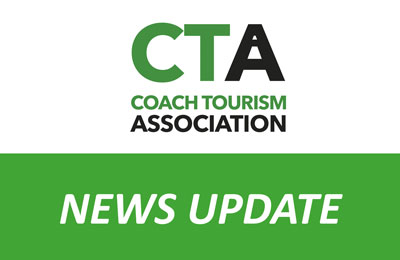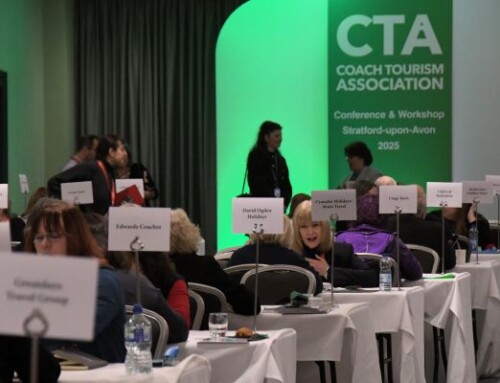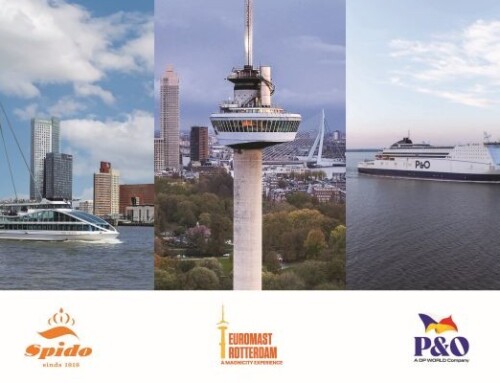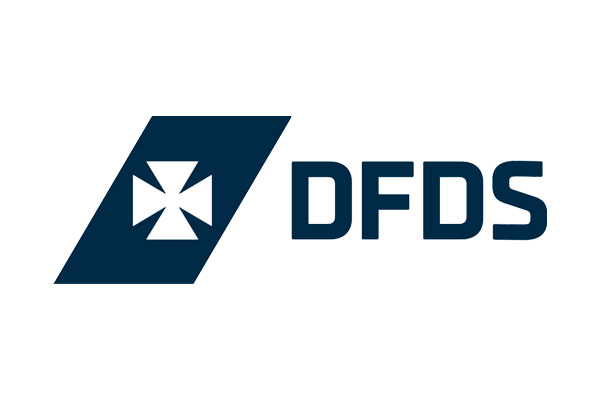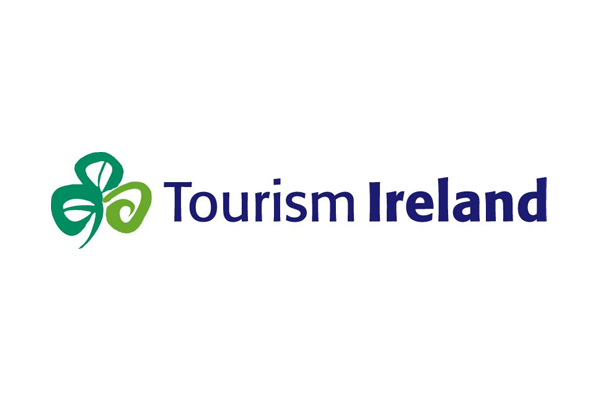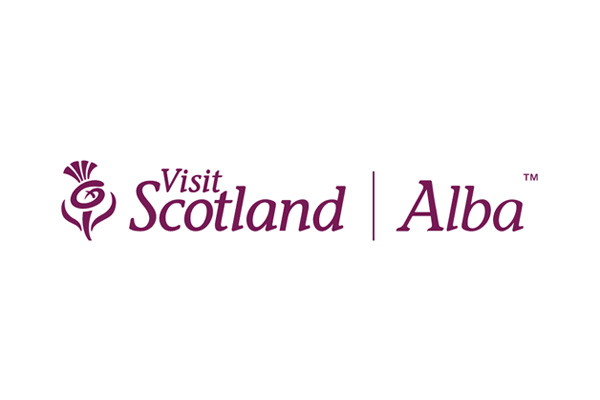COVID-19 Updates – week commencing 02/11/20
More updates of developments from the government and various links to interpretation and guidance.
Go to date:
2 November 2020 …
CPT updates:
UPDATED SCOTLAND COVID RISK TIER STRUCTURE
Guidance has been issued following the announcement of Scotland’s “lockdown” tiers. A detailed list of what can and cannot be carried out at each level can be found here. Information on the tier level of each local authority area can be found here.
We would draw member’s attention to tiers 3 and above, this will be of particular significance to members with coach trips due to travel to Scotland after Monday:
At Tier 3:
• There should be no non-essential travel to/from level 3 or higher areas in Scotland and equivalents in the rest of UK (Very high)
• There are exemptions for essential travel for work, education, shopping, health etc, outdoor exercise, weddings and funerals, shared parenting and transit through restricted areas.
• Avoid non-essential use of public transport
• Accommodation will be open, however, the guidance advises non-essential (leisure/tourism) use only by local residents.
At tier 4:
• There will be no non-essential travel into or out of the level 4 area. If necessary, limits on travel distance, or a requirement to stay at home.
• Again, there are exemptions for essential travel for work, education, shopping health etc; outdoor exercise; weddings and funerals; shared parenting, and transit through restricted areas
• There will be no use of public transport, except for essential purposes
• Accommodation will close for all but essential use only.
Face coverings are compulsory on public transport at all levels, this would also Exemptions for Home to School Transport have not changed.
Following discussions with Scottish Government Tourism officials, we can advise that coach operations should avoid travel from/to tier 3 areas.
CORONAVIRUS JOB RETENTION SCHEME – FURLOUGH EXTENDED
After the Prime Minister announced yesterday evening that England will enter a month-long lockdown on Thursday 5 November lasting until Wednesday 2 December, it was confirmed that the Coronavirus Job Retention Scheme will be extended to cover the period
Therefore employees who are unable to work will receive 80% of their usual pay, up to a monthly cap of £2,500
Employers will retain the flexibility to bring furloughed employees back to work on a part time basis or to furlough them full-time
To be eligible for the extended CJRS, employees must have been on the employers payroll by 30 October 2020, and the scheme is open to employees who have not be claimed for before
There will be no contribution required from employers for the 80% of pay the employee receives, but employers will have to cover National Insurance and employer pension contributions (5% of total employment costs on average)
The Job Support Scheme, which was scheduled to begin today, Sunday 1 November, will be postponed until the extended furlough scheme ends
As the CJRS is a UK wide scheme there may be implications for employers based in the devolved nations. Currently any further details about this have not been made available
Further guidance will be released in the coming days, and we will update members as soon as this is available
Tourism Alliance updates:
The key aspects of the Lockdown are that everyone must stay at home, The only exclusions to this are:
-
- For education;
- For work, if you cannot work from home;
- For exercise and recreation outdoors, with your household, support bubble or on your own with one person from another household;
- For all medical reasons, appointments and to escape injury or harm;
- To shop for food and essentials;
- to provide care for vulnerable people, or as a volunteer.
People can attend funerals but weddings, civil partnership ceremonies will not be permitted to take place except in exceptional circumstances.
Holidays
In terms of movement for holidays, it seems that the restrictions are the same as per the original lockdown. This means that people cannot travel internationally or within the UK. This also means that people must stay in their primary residence and therefore cannot visit a second home or holiday home
As people are allowed to travel for work, it would seem that accommodation providers will be allowed to stay open to provide accommodation for those still able to travel
Business Closures
-
- All non-essential shops, attractions, leisure and entertainment venues will be closed.
- Essential shops, including supermarkets, will remain open
- Pubs, bars, restaurants and cafes must close, except for takeaway and delivery services.
https://www.gov.uk/guidance/new-national-restrictions-from-5-november
Furloughing and Grants
Furloughing
The Coronavirus Job Retention Scheme, which was meant to end yesterday and be replaced by the Job Support Scheme, will now remain in place until December, with the terms of the scheme reverting to the Scheme as it was in August – ie., employees receiving 80% of their current salary for hours not worked, up to a maximum of £2,500 and businesses paying for NI and pension contributions.
Businesses will also have flexibility to bring furloughed employees back to work on a part time basis or furlough them full-time.
Grants
Businesses required to close in England due to local or national restrictions will be eligible for the following:
-
- For properties with a rateable value of £15k or under, grants to be £1,334 per month, or £667 per two weeks;
- For properties with a rateable value of between £15k-£51k grants to be £2,000 per month, or £1,000 per two weeks;
- For properties with a rateable value of £51k or over grants to be £3,000 per month, or £1,500 per two weeks.
https://www.gov.uk/government/news/furlough-scheme-extended-and-further-economic-support-announced
3 November 2020 …
CPT updates
Following on from the announcement that England is to enter a further period of lockdown from Thursday, further details have emerged from the Prime Minister’s address to Parliament this afternoon.
TIER SYSTEM WILL FOLLOW LOCKDOWN
Its been confirmed that if, as expected, England emerges from lockdown on 2nd December, the previous approach of categorising the risk in designated areas under the three tier system will resume. The categorisation will be based on the evidence at that point in time and it should not be assumed that the status will be the same as that currently applicable in each area.
This will be of particular significance to those planning to ramp up operations in the immediate, post-lockdown period.
SELF EMPLOYED SUPPORT
With an extension of the Coronavirus Job Retention Scheme already announced, its now confirmed that the support for those self-employed is also to continue into December, with up to 80% of their trading profits payable through November.
Revisions to the claims procedure will also bring faster payment to claimants.
CBILS SCHEME DEADLINE EXTENDED
The deadline for applications for the Coronavirus Business Interruption Loan Scheme (CBILS) has also been extended through to the close of January 2021.
Those businesses who borrowed less than the allowable maximum in the form of Bounce Back Loans (BBLS), can now make a second application up to the maximum allowed.
NATIONAL RESTRICTIONS FROM 5TH NOVEMBER
4 November 2020 …
Tourism Alliance updates:
Lockdown Regulations
Here is a link to the Lockdown regulations that have just been published and is going before parliament today. the exemptions for travel include the catch-alls of:
- for the purposes of work or to provide voluntary or charitable services, where it is not reasonably possible for P to work, or to provide those services, from home;
(b) for the purposes of education or training;
Also, the business required to be closed includes the following:
Indoor attractions at visitor attractions such as—
(a) botanical or other gardens, biomes or greenhouses;
(b) stately or historic homes, castles or other heritage sites;
(c) landmarks, including observation wheels or viewing platforms;
(d) sculpture parks.
So outdoor areas at these attractions can remain open
https://www.legislation.gov.uk/uksi/2020/1200/pdfs/uksi_20201200_en.pdf
Advice on “Workers”
This is superseded by the above but at the Tourism Industry Council meeting today we received advice from officials on the issue of what constituted work related travel. Please remember that this just the understanding of the DCMS officials at the moment and a definitive answer will only be available when the regulations are voted on and the official guidance is published tomorrow.
-
- On the question of who can travel and stay in accommodation for work purposes, it seems that there will be no restrictions on what constitutes work travel this time ( i.e. work related travel is not limited to specified key workers).
-
- On the issue of who is responsible for verifying whether someone is travelling for work purposes, officials expect the existing approach to continue – accommodation providers should take reasonable steps to encourage guests to adhere to the rules (e.g. ensuring guests are reminded of restrictions when booking/on arrival) but enforcement remains with police & Local Authorities, not with businesses.
- Guidance on Support for the Self Employed (and Employed)
The Government has updated the guidance to self-employed people who are getting little or no work as a result of Coronavirus restrictions. The updated guidance on:
-
- New Style Employment and Support Allowance
- Universal Credit
- Pension Credit
- New Style Jobseeker’s Allowance
- Test and Trace Support Payment
There has also been a similar guidance update for those that are employed and cannot work due to coronavirus
https://www.gov.uk/guidance/coronavirus-covid-19-what-to-do-if-youre-employed-and-cannot-work
Future Fund Application Date Extended
The Future Fund is a scheme that will issue convertible loans between £125,000 to £5 million to innovative companies which are facing financing difficulties due to the coronavirus outbreak subject to at least equal match funding from private investors.
The Fund was created to support startups and scale-ups that find that they are ineligible for other loans schemes like the CBILS and Bounce Back loans. The fund was initially open for applications until 30 September 2020 but this has now been extended to 31 January 2021
https://www.gov.uk/guidance/future-fund
The Government has announced that the other loan schemes will also remain open until 31 January 2021. The Links to the three schemes are:
Bounce Back Loans
https://www.gov.uk/guidance/apply-for-a-coronavirus-bounce-back-loan
CBILS
https://www.gov.uk/guidance/apply-for-the-coronavirus-business-interruption-loan-scheme
CLBILS
https://www.gov.uk/guidance/apply-for-the-coronavirus-large-business-interruption-loan-scheme
SEISS Guidance Updated
HMRC’s guidance on the Self-Employment Income Support Scheme Grant has been updated in line with the announcement that the scheme has been extended and will now operate at the 80% leve3l
6 November 2020 …
CPT update:
CORONAVIRUS JOB RETENTION SCHEME – FURLOUGH EXTENDED AGAIN
The Chancellor of the Exchequer Rishi Sunak announced today that the Coronavirus Job Retention Scheme will be further extended beyond 2 December 2020 until 31 March 2021
Eligible employees will receive 80% of their usual salary for hours not worked, up to a maximum of £2,500 per month
Employers will be able to flexibly furlough staff or to use the scheme to furlough employees full-time
There will be NO employer contribution to wages for hours not worked.
Employers will only be asked to cover National Insurance and employer pension contributions for the hours not worked
The CJRS is a UK wide support scheme, and the extension announced today will apply in Scotland, Wales and Northern Ireland as well as England
Eligibility
Neither the employer nor the employee needs to have previously claimed or have been claimed for under CJRS to be able to make use of the extended scheme
An employer can claim for employees who were employed and on their PAYE payroll on 30 October 2020
The employer must have made a PAYE Real Time Information (RTI) submission to HMRC between 20 March 2020 and 30 October 2020, notifying a payment of earnings for that employee
Employees that were employed and on the payroll on 23 September 2020 (the day before the Job Support Scheme announcement) who were made redundant or stopped working afterwards can be re-employed and claimed for
JOB RETENTION BONUS
The JRB for workers retained in employment until the 31 January 2021 will not now be paid in February
However the Chancellor has said that the intention is to put in place a retention incentive at the appropriate time
CPT update:
SAFER TRANSPORT GUIDANCE FOR OPERATORS
The Department for Transport has updated the Safer Transport Guidance for Operators webpage, adding information about the new national restrictions for England replacing the local restrictions previously followed
The public must avoid travelling within England and other part s of the UK, and stay at home, unless they are travelling for work, education or for other legally permitted reasons
Transport operators providing services should continue operating services as normal for those who have a legally permitted reason* to travel.
Operators are encouraged to review their risk assessments regularly to ensure they remain relevant and appropriate, especially in light of the increased levels of infection in certain areas
*Legally Permitted Reasons for Travel
- travelling to work where this cannot be done from home
- travelling to education and for caring responsibilities
- to visit those in your support bubble – or your childcare bubble for childcare
- hospital, GP and other medical appointments or visits where you have had an accident or are concerned about your health
- to buy goods or services from premises that are open, including essential retail
- to spend time or exercise outdoors – this should be done locally wherever possible, but you can travel to do so if necessary (for example, to access an open space)
- attending the care and exercise of a pet, or veterinary services
Travel to an from education is of course included in the list of legal reasons to travel. However, the guidance for Education (school, college and university) says that travel for extra-curricular purposes, for instance as part of clubs, should not take place
Overnight stays and holidays away from primary residences will not be allowed, and this will include holidays in other parts of the UK outside England
This ban on overnight stays does not include situations where people are unable to return to your main residence, need accommodation while moving house, to attend a funeral or related commemorative event or require accommodation for work purposes or to provide voluntary services
People must not travel if they are experiencing COVID-19 symptoms, are self-isolating as a result of symptoms, are sharing a household or support bubble with somebody with symptoms, or have been told to self-isolate after being contacted by NHS Test and Trace
The fine for breaching self isolation rules start at £1,000. This could increase to up to £10,000 for repeat offences and the most serious breaches, including for those preventing others from self-isolating
SAFER TRANSPORT GUIDANCE FOR OPERATORS (UPDATED)
Tourism Alliance update:
Here is the guidance on the £1.1billion Discretionary Fund for Councils
Of particular interest in Paras 22 and 23 which state:
Local Authorities can determine how much funding to provide to businesses from the ARG funding provided, and exactly which businesses to target.
However, we encourage Local Authorities to develop discretionary grant schemes to help those businesses which – while not legally forced to close – are nonetheless severely impacted by the restrictions put in place to control the spread of Covid-19. This could include – for example – businesses which supply the retail, hospitality, and leisure sectors, or businesses in the events sector.
Addendum on Local Restriction Grant Support
The Government has published confirmation that, when the national lockdown starts, the Local Restrictions Support Grant (Open) and (Sector) will cease to apply, and the Local Restrictions Support Grant (Closed) will be superseded by the national Business Grant. This means that businesses will not be eligible for multiple versions of the various Support Grants while under the national lockdown.
Question on Grant Eigibility
Baroness Doocey tabled the following question regarding eligibility for grants in response to the Government’s announcement of a new national lockdown. The answer suggests that the Government will not include any eligibility criteria to local authorities on how they should allocate these grants, meaning that all tourism-related businesses will be eligible to apply.
Baroness Doocey (LD)
My Lords, the tourism and hospitality industries have been thrown into confusion by the latest announcements. Tour operators, conference and events organisers, coach operators and language schools are important components of the travel industry. Will these firms be eligible to claim either the local restrictions support grants or any of the £1.1 billion given to local authorities to support businesses?
Baroness Evans of Bowes Park (Con)
Both the pots of money the noble Baroness mentions are under the control of local authorities, and it is entirely up to them to decide which sectors or types of business to support in their area. It is within their gift to provide support, if they have businesses in those sectors, as the money is for them to provide to local businesses, which they know best.
WTTC Forecast
The WTTC have updated their Coronavirus impact scenarios for the UK Travel & Tourism sector and are forecasting that believe 2.4 million jobs could be lost in the UK Travel & Tourism sector in 2020 if barriers to global travel remain in place. Here’s a link to their press release. While it is important to note that the WTTC figures include supply chains, which is why they differ from the ONS figures of 3.2m people working in tourism-related businesses in the UK, their prediction that around 60% of jobs in the sector could be lost is of considerable concern.
Guidance updates Q&As
DCMS has provided the following Q&A in response to some of the questions that you have been sending through.
Q. Can the outdoor elements of botanical gardens be open, even if the indoor parts (hot houses etc) are closed?
A. Yes. Indoor attractions at botanical gardens, heritage homes and landmarks must close, but outdoor grounds of these premises can stay open.
Q. What does it mean for people already on holiday?
A. At the time that restrictions are brought in, if people are currently on holiday and it is not reasonable for them to curtail their stay, they may finish their holiday as planned; the duration of stay should only be as long as reasonably necessary and they should return home as soon as practical. People must comply with the ‘stay at home’ requirements and make every effort to reduce socialising indoors outside of their household whilst in holiday accommodation in the meantime.
Q. If lockdown starts at 1am Thursday what is the situation with guests already booked to stay and can hotels serve breakfast to guests leaving on Thursday morning?
A. Guests are allowed to finish their bookings if they were started before Thursday; the duration of stay should only be as long as reasonably necessary and they should return home as soon as it is practical to do so. They will need to comply with the ‘stay at home’ requirements in their holiday accommodation. Restaurants, dining rooms and bars in hotels will need to close from Thursday therefore breakfast in the hotel restaurant cannot be served, but room service is permissible.
Q. What purposes can hotels and accommodation providers remain open for?
A. Overnight stays and holidays away from primary residences will not be allowed. This includes staying in a second home or caravan, or staying with anyone you do not live with or are in a support bubble with. Guest accommodation providers such as hotels, B&Bs and caravan parks may remain open for the specific reasons set out in law, where guests:
- Are unable to return to their main residence
- Use that accommodation as their main residence
- Need accommodation while moving house or attending a funeral
- Need to self-isolate as required by law
- Need accommodation for the purposes of their work, or children who need accommodation for the purposes of education
- Are elite athletes, their coach or (in the case of an elite athlete who is a child), the parent of an elite athlete, and need accommodation for the purposes of training or competition
- Are currently in that accommodation at the time when national restrictions come into force.
- Are visiting from abroad on holiday or for work purposes
- Are being provided accommodation to relieve homelessness
Accommodation providers may keep their business open to provide accommodation to vulnerable groups including the homeless, to host blood donation sessions, or for any purpose requested by the Secretary of State, or a local authority.
Accommodation providers are also encouraged to work cooperatively with Local Authorities to provide accommodation to vulnerable groups including the homeless during this period of national restrictions.
Q. What is the definition of “work” as a reason for stays in B&B or hotels?
A. Anyone who needs accommodation for the purposes of their work may stay in guest accommodation. There is no legal definition of ‘work’ i.e. no restriction to only allow key workers as there was during the initial national lockdown.
Q. What are accommodation providers meant to do to “validate” whether a stay is for leisure or work? We cannot be expected to police the reason for a stay.
A. Accommodation providers should take all reasonable steps to encourage guests to adhere to government restrictions, including informing guests of restrictions when taking bookings and communicating to all customers, including those with existing bookings, reminding them not to travel unless it is essential (such as for work purposes or attending a funeral). Enforcement of the law remains a matter for the police and Local Authorities.
Q. Can alcohol be served as part of hotel room service, and if so will it need to be served as part of a meal?
A. Food and/or drink including alcohol can be provided through room service as long as it is ordered by phone or online.
Q. Can hotel lounges and lobbies stay open?
A. Communal spaces such as lounges or lobbies may remain open to guests but no food or drink should be served in these spaces, people should be encouraged not to gather and social distancing should be observed.
Q. Are business meetings for up to 30 people still permitted?
A. Business meetings and events are advised against, but may take place with up to a total of 30 people if reasonably necessary – for example for the purposes of work that cannot be done at home – if social distancing can be maintained and the venue can demonstrate it has followed the COVID-19 guidance. Event spaces can be used for reasons permitted by law, including for education and training purposes where reasonably necessary.
Q. Can weddings take place?
A. Weddings and civil partnership ceremonies will not be permitted to take place except where one of those getting married is seriously ill and not expected to recover (‘deathbed wedding’). These weddings are limited to 6 people.
Q. Can anyone be furloughed or just people who have been furloughed previously. This is particularly an issue where businesses have recruited new staff?
A. All employers with a UK bank account and UK PAYE schemes can claim the grant. Neither the employer nor the employee needs to have previously used the CJRS.
CPT update:
CLINICALLY EXTREMELY VULNERABLE STAFF – UPDATED GUIDANCE
The Department of Health & Social Care and Public Health England today (4 November) released updated guidance for Clinically Extremely Vulnerable people during the national lockdown starting 5 November
People who are defined as clinically extremely vulnerable are at very high risk of severe illness from COVID-19
There are 2 ways people will be identified as clinically extremely vulnerable:
- They have one or more of the conditions listed below
- A hospital clinician or GP has added that person to the Shielded patients list because, based on their clinical judgement, they deem you to be at higher risk of serious illness if you catch the virus
Everyone in England, including those who are clinically extremely vulnerable, is required to follow the new national restrictions from 5 November, which have been set out by the government and apply to the whole population
There is additional guidance for clinically extremely vulnerable people, to help protect them from COVID-19
DHSC will also write individually to people identified as CEV
The guidance is for clinically extremely vulnerable people to stay at home as much as possible, except to go outdoors for exercise or to attend essential health appointments
Anyone who is CEV is strongly advised to work from home
Those who cannot work from home should not attend work for this period of restrictions
Employers should note that employees who are CEV and were on the payroll before 30 October 2020, will be eligible to be furloughed and claimed for through the extended Coronavirus Job Retention Scheme
These new shielding measures will apply nationally for 4 weeks from 5 November to 2 December.
At the end of the period, it is intended to return to a regional approach and DHSC will issue further guidance for the CEV at the time
Conditions:
- solid organ transplant recipients
- those with severe respiratory conditions including all cystic fibrosis, severe asthma and severe chronic obstructive pulmonary disease (COPD)
- those with rare diseases that significantly increase the risk of infections (such as severe combined immunodeficiency (SCID), homozygous sickle cell disease)
- those on immunosuppression therapies sufficient to significantly increase risk of infection
- adults with Down’s syndrome
- adults on dialysis or with chronic kidney disease (stage 5)
- women who are pregnant with significant heart disease, congenital or acquired
- other people who have also been classed as clinically extremely vulnerable, based on clinical judgement and an assessment of their needs. GPs and hospital clinicians have been provided with guidance to support these decisions
- those with specific cancers and:
- who are undergoing active chemotherapy
- with lung cancer who are undergoing radical radiotherapy
- with cancers of the blood or bone marrow such as leukaemia, lymphoma or myeloma who are at any stage of treatment
- having immunotherapy or other continuing antibody treatments for cancer
- having other targeted cancer treatments that can affect the immune system, such as protein kinase inhibitors or PARP inhibitors
- who have had bone marrow or stem cell transplants in the last 6 months or who are still taking immunosuppression drugs
The guidance can be found using the link below
